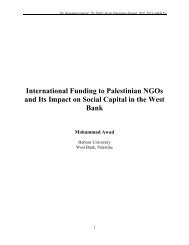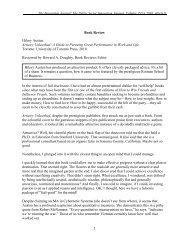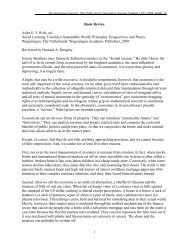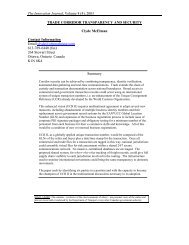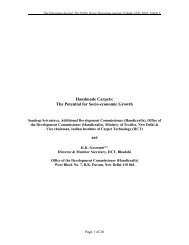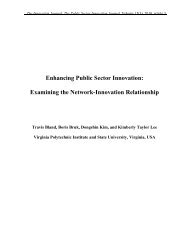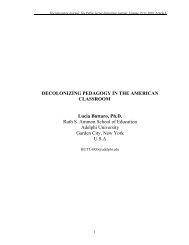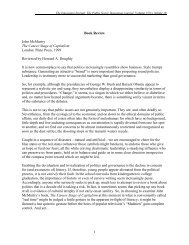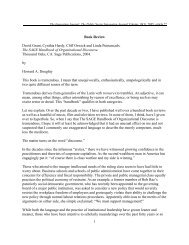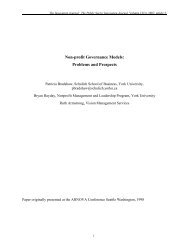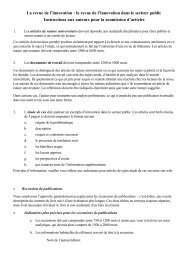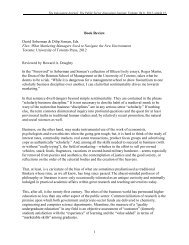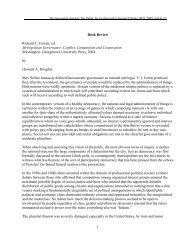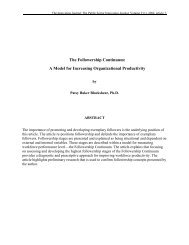William Easterley, White Man's Burden - The Innovation Journal
William Easterley, White Man's Burden - The Innovation Journal
William Easterley, White Man's Burden - The Innovation Journal
You also want an ePaper? Increase the reach of your titles
YUMPU automatically turns print PDFs into web optimized ePapers that Google loves.
<strong>The</strong> <strong>Innovation</strong> <strong>Journal</strong>: <strong>The</strong> Public Sector <strong>Innovation</strong> <strong>Journal</strong>, Volume 12(2), 2007, article 14.<br />
of the phrase, there is much to be said for the good works of the “ugly American,” a noble and<br />
dedicated aid worker in 1950s Sarkhan (a thinly veiled fictional Vietnam) whom Easterly would<br />
surely credit for selfless devotion to helping people “on the ground.” As well, they lament his<br />
tendency to overstatement and his preference for acrimony where decent and more productive<br />
dialogue could have been established.<br />
What remains obscure and especially worrisome, however, is how desperately poor people with<br />
doubtless demands but little capacity to purchase any available supplies can be expected to<br />
transform bare subsistence economies into flourishing exchanges of surplus goods and what<br />
happens afterwards in those instances where foreign assistance succeeds – either from the<br />
largesse of bumptious international aid boosters or from small scale Adam Smiths intent on<br />
freeing up enterprise and searching for success.<br />
One way or another, a place will be found for large investors in the event that there are natural<br />
resources or human skills to be exploited at corporate rates. That may be a problem for another<br />
time, but it is still a problem. It has appeared in one form in Bolivia, where water is considered an<br />
important consumable. Private corporations (Suez from France and Bechtel for the USA) made<br />
agreements with the Bolivian government – under pressure from the World Bank – to privatize<br />
the country’s water supply. <strong>The</strong> results were popular uprisings in Cochabamba and El Alto. Even<br />
among the poor in Latin America’s poorest country, consumer rebellions have galvanized people<br />
against the world’s most likely alternative to socialism. Peddling the kind of pre-industrial free<br />
market theories that have been eclipsed by the invention of the limited liability corporation may<br />
appeal to antiquarian populists and aging libertarians; but, in its own way, it is no less naïve than<br />
disseminating the dreams of bureaucratic do-gooders.<br />
<strong>The</strong> slogan that adorns the World Bank Headquarters in Washington D. C. reads: “Our dream, a<br />
world free of poverty.” Easterly, who worked for the World Bank for enough years to know,<br />
considers it a social engineering conglomerate; others see it as an instrument of corporate<br />
globalization. Both may be right. Perhaps there is another way.<br />
Howard A. Doughty is Book Reviews Editor of <strong>The</strong> <strong>Innovation</strong> <strong>Journal</strong> and teaches at Seneca<br />
College of Applied Arts and Technology, King City, Canada.<br />
6



